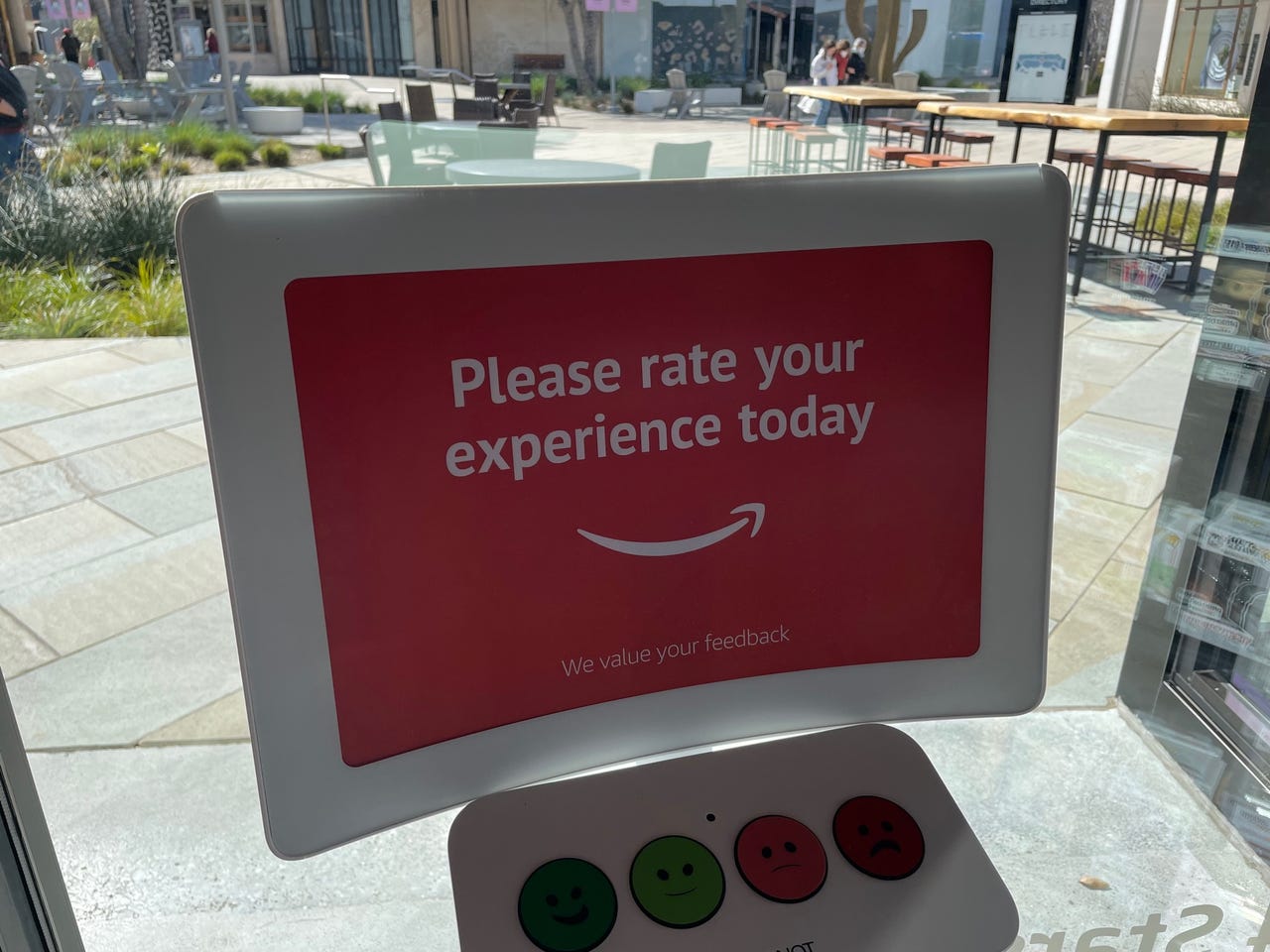I went to an Amazon store and it really hurt my eyes

Well, it wasn't great.
It was an exciting masterplan.
Bankrupt physical retail stores take over the spaces at lower cost and sell the most popular wares on your retail website in the physical stores.
Oh, and use them as a pick-up location to ease your shipping costs.
One can imagine the fine essay presented to Jeff Bezos on the subject. One can imagine his fine-lipped smile as he read it.
Somehow, though, this physical retail thing didn't have quite the muscle Amazon thought. Recently, the company announced it was closing all 68 of its book, four-star and pop-up stores.
I confess I'd never visited any of them, so I thought I'd find one, see what it was like and wonder why it had all gone wrong.
I wandered into a Bay Area four-star store on a Saturday, and the effect wasn't entirely deserving of many stars at all.
It was largely empty of people but still felt cluttered, jumbled up and more confused than a squirrel trying to read a book.
Children's toys were huddled next to business books. Cookware struggled for space next to office products.
I wasn't sure what I was supposed to feel. Other than that, this was like going to Amazon's home page without knowing what I really wanted.
There was no focus, no consideration for trying to guide you through some sort of shopping experience. One was merely supposed to think that everything here was supposedly good, even though it often seems most products on Amazon have at least a four-star rating.
Do I really want to go to a physical store to discover that other people in the Bay Area are buying All-Clad skillets? Do I need an All-Clad skillet? Do I need to be like other people in the Bay Area?
Does this matter?
And, please, did I miss something? Is TikTok the place to get book recommendations?
Yet here was a whole display of BookTok's favorite reads. Does this mean Amazon's recommendations aren't really all that? Did Amazon have to import recommendations from a singing-and-dancing app?
Is this a thing?
I ended up seeing a cutting board for $45. I suddenly remembered we needed one, as ours had begun to split from all my inexpert chopping.
So I picked it up and took it to the counter.
The very nice saleswoman charged me a mere $29 for it. I'm not really sure why.
"Did this place used to be busy?" I asked.
"It was at Christmas," she said. "Everyone was looking for last-minute gifts."
I asked when the store was closing.
"The 19th," she said. "We didn't get much notice."
I sense your surprise.
This type of store was, of course, merely one of Amazon's experiments. Some of its retail concepts, such as cashierless stores, are still expanding. Perhaps because they're a more original idea than "let's make a mini homepage store of stuff and tell people it's good."
I couldn't imagine that anyone would actively seek out one of the four-star stores, which seemed to be based on an entirely flimsy idea: that people would want to see four-starred products in person. Out of some sort of fascination, you understand.
Amazon may be admired for its convenience and efficiency, but it may not be quite so admired for its ability to get people to make an effort.
I can't say that the company has done anything to incite me to visit a Whole Foods since it bought it. Just as I can't say, it did anything to make me feel a four-star store was anything but a one-star experience.
Human emotions are strange things, and Amazon isn't always adept at responding to them.
At least that's what some people at Amazon tell me.
